Senior horses are a whole other level of special. It’s a time when we can really slow down and really enjoy them at a natural horse’s pace. They’ve done their time in sport or pleasure and there comes a day when it’s time to shift their care regime to retirement or semi-retirement.
The shift can be a pleasant one and a time you can both really enjoy. If you have a senior horse, today’s blog is for you!
Today we’re talking senior horse care tips. I want to give some preventative tips for horses that haven’t reached the golden years and for older horses so they can live their best lives.
Older and Wiser (and More Vulnerable)
Just like us, our horses are more susceptible to aches and pains and illness as they age.
Common issues in older horses include:
- arthritis
- joint and ligament injuries
- insulin resistance
- Cushing’s disease
- laminitis
- asthma
- skin disease
- glaucoma
- neurologic diseases
- gut issues (including ulcers and colic)
- tumors.
A perfect example of a healthy senior horse is the record-holding world champion and multiple grand prix dressage Olympic gold medalist, Valegro. The care that this horse received all the way through his lifetime has resulted in a beautiful and comfortable retirement.. His longevity was preserved when he was retired from sporting in 2016 at the age of 14. By this age, he had set all the world records and won every Olympic gold medal there was to win more than once. There was no need for him to continue and his rider Charlotte Dujardin and co-owner Carl Hester said he owed them nothing. His impeccable care during his show career, his age of retirement, and his retirement program have kept this horse in tip top shape and he continues to be appropriately exercised and doted on as a senior. He is now 20 years old – fit, sound and very happy. This is the very best of both worlds for a performance horse. If you’d like to see his retirement performance click here.
Maintenance and Prevention
Most of our horses haven’t even seen the level of work that these top performance horses see, and so we have a lot of potential to preserve them into old age as long as we are mindful of the process.
So let’s talk about maintenance and prevention first:
1. Exercise
With a young horse, it’s very important to allow frequent or all-day turn out. The reasons for this are multiple and include mental well-being through social time, movement, and foraging. Regular low impact movement also strengthens the integrity of the bones, joints, and ligaments. This sets your horse up for sturdiness over their lifetime. (1)
2. Diet – diet – diet
As we know for ourselves, the more processed and starchy foods we eat, the more inflammation we harbour in our bodies. This is true for horses too. Horses are very sensitive to starch and sugar and can be affected over the course of their lifetime by the amount of sugar their bodies have to process. This can cause inflammation throughout the body and lead to any number is inflammatory diseases your horse might be susceptible to. Remember that diet is something that you can really control so it’s a great thing to start with a clean and supportive species-appropriate diet, free of processed food as early as possible. For more information on how to do this, check out our equine diet blog.
3. Eliminate Dietary Sources of Glyphosate (AKA Roundup)
This is a hidden, but dangerous, ingredient found in conventionally grown wheat, corn, soy, sugar beets, and alfalfa. It is an endocrine disruptor and patented antibiotic that can affect your horse’s metabolic function and gut health. It’s important to eliminate this as early in life as possible to help avoid gut and metabolic disorders later in life.
4. A Safe and Gradual Training Program
Slow and steady is the name of the game if you want your horse to have a long and comfortable life. This goes for any type of riding discipline. Horses don’t finish growing, on average, until the age of 5-6 years old. Horses that are started too early into heavy work will be spent at an early age and might now have such a comfortable time as a senior. Let your horse develop slowly and steadily over time and only ask for when you know your horse can handle. Don’t push for more if you know they aren’t ready. Gradual strength-building is the best way to avoid serious injury to a growing horse and even adult horses.
5. Non-Invasive Ligament and Joint Maintenance
Consider a joint maintenance program for horses in medium to heavy work. My favourite options are injectable forms of hyaluronic acid and glucosamine along with leg icing daily after work for at least 20 minutes in the hot months of the year and during showing. I don’t personally agree with continuing to work a horse that has degenerative changes to these tissue and also don’t subscribe to steroid injections in order to keep going with heavy training. While steroids can provide relief from inflammatory processes, they also destroy cartilage and so the only logical and ethical use for steroids (in my opinion) is when you decide to retire your horse and you want to use this option for quality of life purposes. Your horse will not last if you inject them regularly and continue with heavy wear and tear sporting.
6. Gut Support
As I’ve droned on about for years, gut health is connected to all forms of inflammatory disease since it is a large part of how the body regulates inflammation. Starting your horse on a good gut support program as early as possible is another way you can prevent problems later in life. Through gut supportive herbs including marshmallow root, dandelion leaf and root, licorice root, slippery elm, psyllium husk, raspberry leaf, nettle, etc., you can provide that extra level of nutrition that can help to support the gut and the entire body. Pre and probiotics are another vital factor in supporting the body and reducing inflammation.
7. Finding a Good Farrier
Ensuring that your horse’s feet are properly maintained is paramount to longevity. The old saying is “no hoof, no horse” and this is 100% true. A horse’s hoof needs may change over their lifetime so it’s important to keep a regular schedule and review and revise with your farrier frequently.
8. Considering the Right Environment for Your Horse
Every horse is an individual and what works for one horse will not always work for another. When it comes to management of their environment, this depends largely on their geographical location, temperament, what type of work they are doing, and what you can afford in terms of time and money. Be sure that you are considering the best environment in terms of the type of turnout and/or stabling provided, bedding type, social companions, turnout size, stall/paddockand arenafooting, water sources, hay sources and air quality. Horses that are physically and mentally uncomfortable in their environment will not sleep properly and may be susceptible to stress, which increases cortisol and can cause a variety of diseases over time.Your horse’s environmental needs will likely change throughout their lifetime so stay open and honest about your horse’s needs at all stages of their life.
Senior Horse Care Tips
Ok! Now that we’ve got that out of the way, let’s get into what you can do to help your horse in the golden years. You’ll want to continue with the above considerations as your horse ages and be ready to deal with the special needs they may develop in their old age. Here are some helpful, non-invasive ways to help your senior horse live a quality life:
1. Regular Movement
As much as is comfortable for your horse. Movement helps to increase blood flow and oxygenation throughout the body. This is extremely important for large animals that bear a lot of weight on the limbs. Be sure to get your horse moving as frequently as possible in a way that is comfortable for them. Turning them out in pasture or an in/out stabling situation along with hand walking and/or light riding can make all the difference in keeping your horse sound and comfortable.
2. Adjust the Diet as Needed
If you maintain a high fibre, medium protein/fat and low starch diet throughout their lifetime, your horse may not need a huge adjustment but always evaluate you horse’s body condition and special needs to determine if they might need an overhaul on their diet.
3. Bloodwork and Other Diagnostics
Consider regular wellness checks for your senior horse. Routine bloodwork can give you a look into how your horse’s organs, metabolism, and immune system are functioning. You can also do mineral testing, x-rays, and any other diagnostic procedures that you suspect they might need. Non-invasive procedures can provide a lot of information and can indicate early signs of disease before they are visible. This is the best time to address a disease – when it’s not in full force!
4. Regular Dental Checks
Be sure your vet regularly assesses your horse’s dental health. A healthy mouth is important for healthy eating habits and overall wellness. This is especially important for a senior horse.
5. Minimize or Eliminate Vaccines
I’m just going to say it; I feel that horses are vaccinated far too frequently. If you can, opt for titre testing (antibody testing) instead of re-vaccinating your horse frequently. Once a horse has antibodies to a disease, it’s up to the immune system to intelligently use that information. So even a low titre indicates the presence of antibodies and a booster does not necessarily change your horse’s level of immunity to it. In fact, vaccinations cause immune-mediated inflammatory stress so they can have the opposite affect if they are done too frequently throughout your horse’s lifetime. This is a controversial topic but immune health is largely misunderstood in horses and current vaccine protocols for them may need a thorough overhaul.
6. Joint Support Supplements and Herbs
Supplements including plant-based omega 3s, glucosamine, hyaluronic acid, turmeric, and devil’s claw can all be used to improve mobility and soundness in horses. You may want to assess their effectiveness individually with your horse so that you are not adding more than you need to. See what works and stick with it.
7. Homeopathy
Having a homeopathic first aid kit on hand is a great way to support your horse and possibly minimize the use of anti-inflammatory drugs as your horse ages. Many horses develop arthritis at some point in their lives and homeopathic remedies such as Arnica, Aconite, Ruta, Symphytum, Rhus Tox, and Bryonia can be extremely useful for increasing mobility and quality of life. As we well know, NSAID medications can cause ulcers which can lead to life-threatening colic so it’s important to try to minimize their use wherever possible. It’s always a balance of finding the least invasive but most effective balance for your horse’s quality of life. Homeopathy can be used alongside NSAID medications so you can find a rhythm and balance between the two that works for your horse. Other homeopathic remedies may be indicated for chronic illness and it’s best to work with a certified homeopath to determine individual needs with chronic remedies.
8. Regular Body Condition Assessments
Making sure that you notice changes in your horse’s condition is the key to adjusting their care regime to keep tham as comfortable as possible for as long as possible. Be sure that your horse is maintaining an ideal weight, that their skin and haircoat are healthy, their manure is regular and well-formed, their feet are growing properly and are trimmed regularly, and that any lesions are cared for quickly and appropriately.
9. Fecal Checks Instead of Worming Meds
Consider preforming regular fecal checks to look for high parasitic loads rather than blindly deworming your horse with harsh medications on a regular bases. Every time you deworm your horse, it not only kills parasites but it also disturbs the microbiome. It is important to understand that while these medications can be useful in parasite infestations, they can also be harmful when overused. Your parasite count goal doesn’t have to be zero since we all have a certain parasite load in our bodies but if they can live in harmony and your horse shows no signs of ill-health, it’s not necessary to regularly use drugs. Our goal should never be sterility but balance of the system.
10. Keep them Warm in the Winter and Cool in the Summer
Senior horses (and young horses) have less ability than healthy adults to regular their body temperature. It’s important to ensure they aren’t too hot in the summer and that they are warm enough in the winter. Showering, leg icing, and providing shade in the summer along with appropriate winter blanketing in the winter are important for their wellbeing during the various seasons.
There’s a lot that we can do now, and in the future, to help keep our equines healthy and happy. These senior horse care tips will give you the opportunity to protect their health and longevity long term. There’s no better time to start than now!
References:

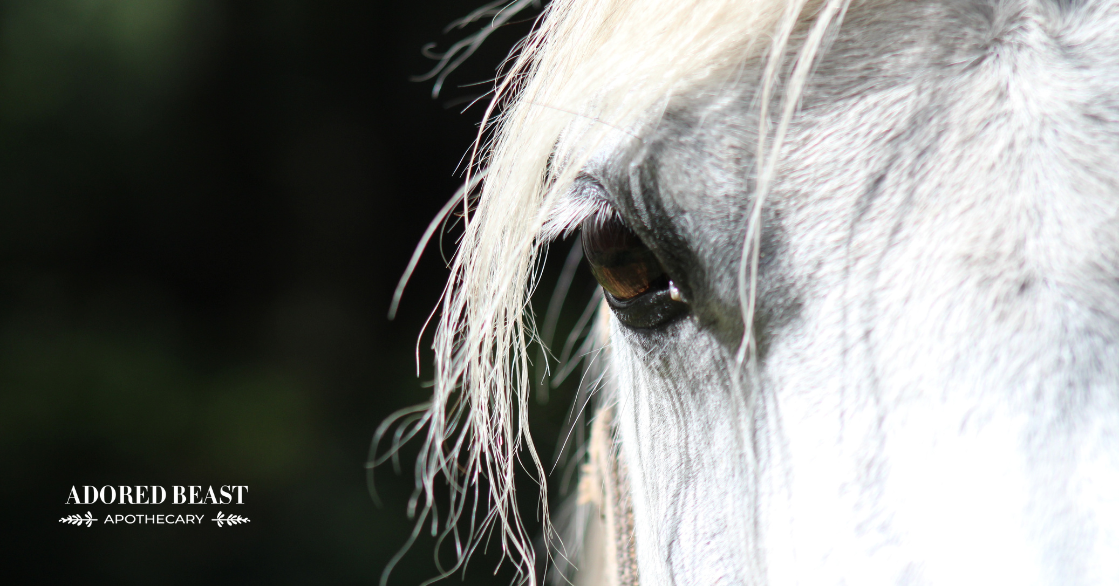
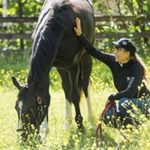
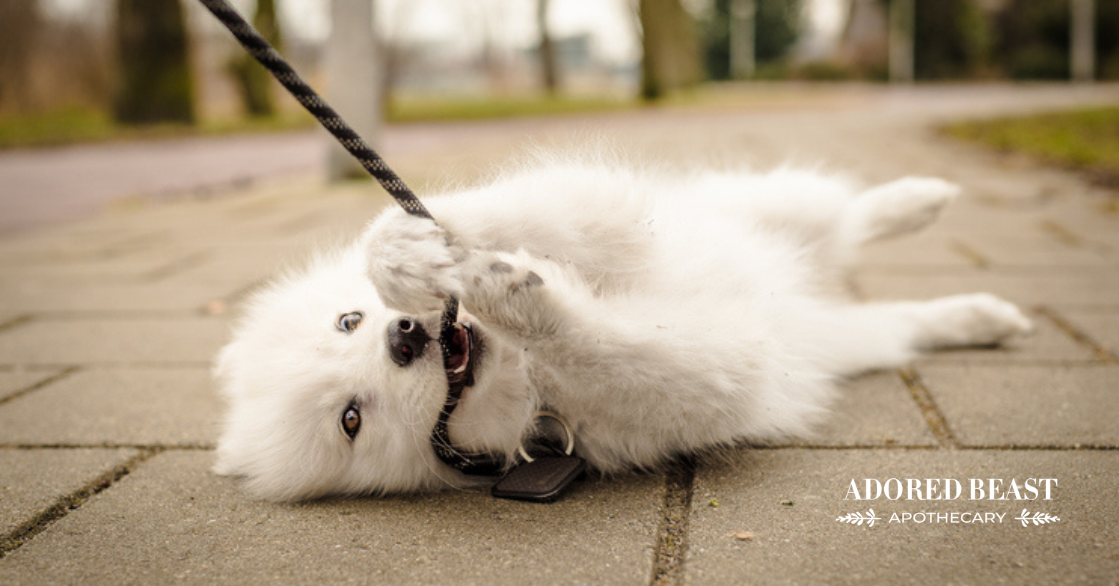
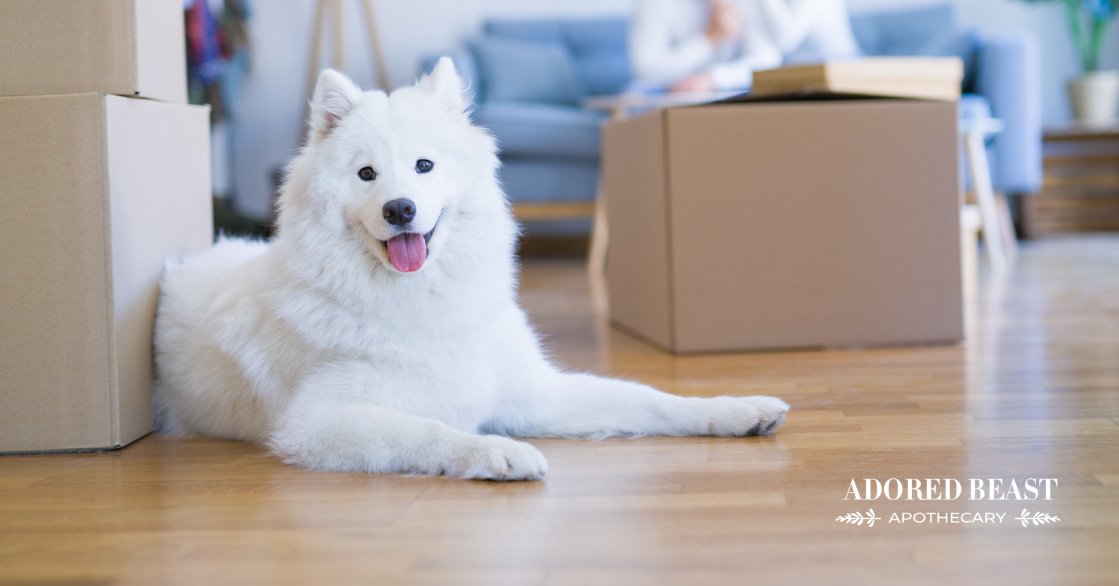
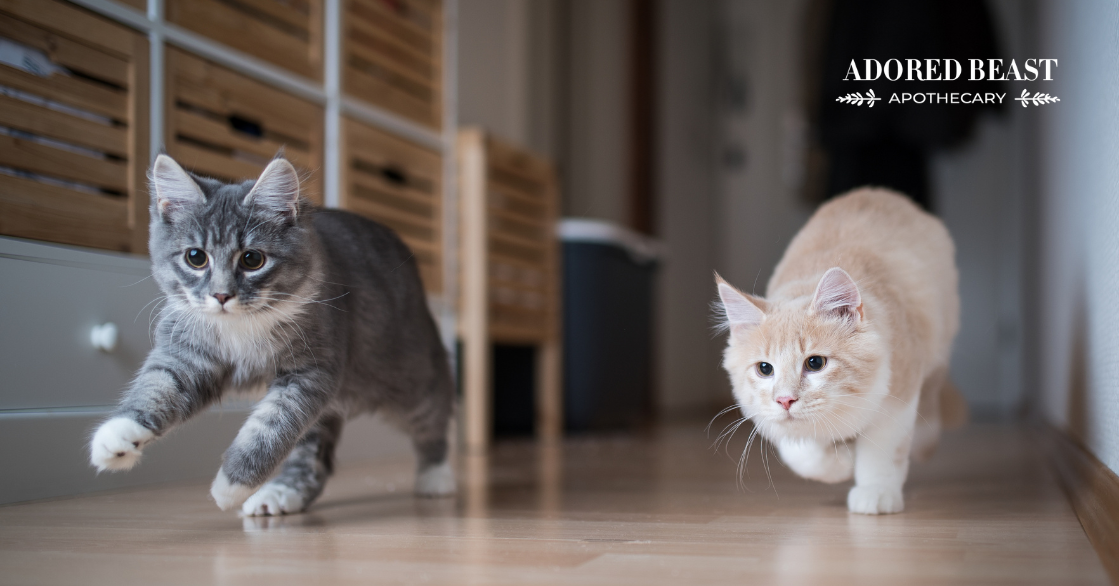
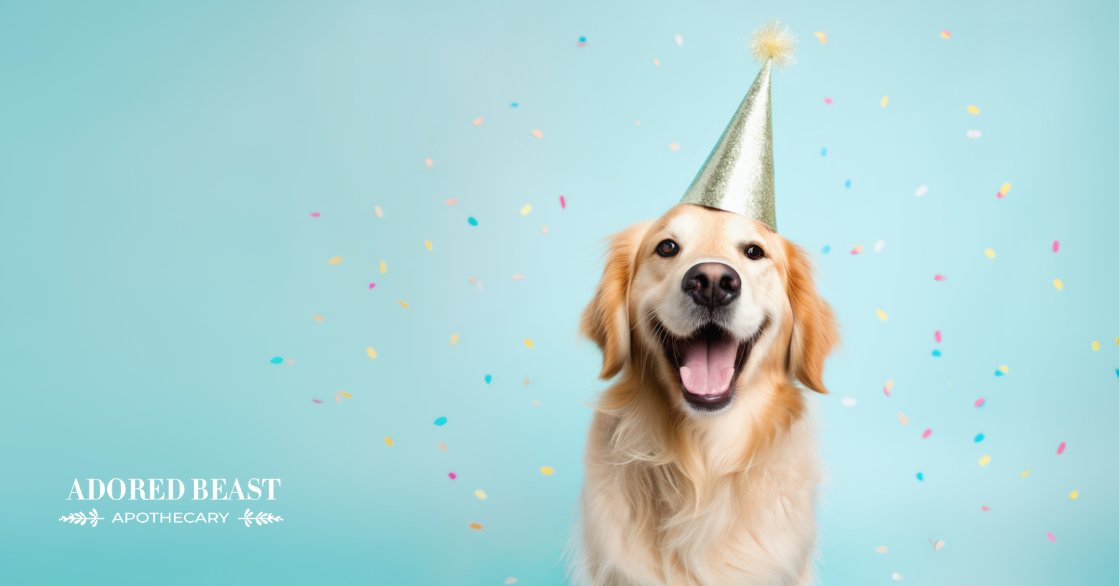





![[RESEARCH] Is Herbicide Safe for Dogs?](https://blog.adoredbeast.com/wp-content/uploads/2025/06/herbicides-safe-for-dogs-103x55.png)